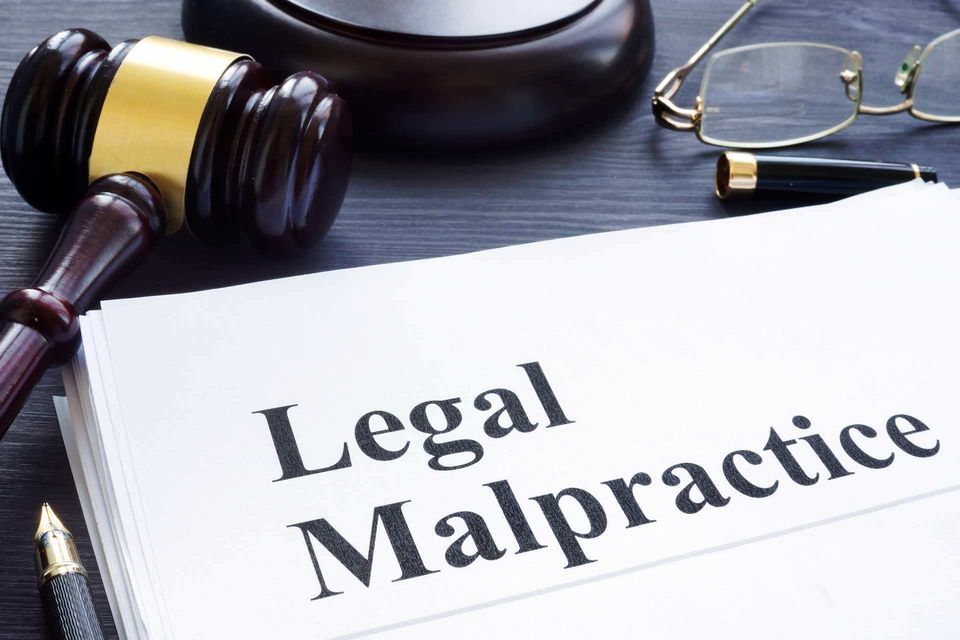Blog Layout
Can I Sue My California Attorney for Legal Malpractice?
Oct 03, 2017
Can I Sue My California Attorney for Legal Malpractice?
While no attorney takes pleasure in suing another member of the profession, there are times when it is both necessary and warranted. If you hired an attorney, who failed to handle your case properly, filing a legal malpractice action could be in your best interest.
Most people do not realize that as clients – or former clients — they have the right to hire an attorney to bring an action against their former attorney. In fact, people are often intimidated by their lawyer or the legal process in general, so they’re afraid to consider suing a lawyer.
We are here to help you. We represent clients in legal malpractice cases to achieve redress for their wrongs and to maintain the high standards of the legal profession.
It is worth noting that these cases are often complicated and difficult to win because you must prove not only that your lawyer breached the standard of care, but also that “but for” your attorney’s negligence you would have achieved a better outcome. To be sure, this is a difficult standard to meet, which is why you need our team of experienced malpractice attorneys on your side.
Don't wait to consult us if you think you may have a claim because the statute of limitations on a legal malpractice case is often shorter than other actions. Keep reading these frequently asked questions to find out if you may have a case, and how to pursue it if you do.
Did My Attorney Commit Malpractice?
Unfortunately, lawyers can fall short in fulfilling their duties to clients and meeting the standard of care in the profession. However, simply losing your case or arriving at what you consider an unjust result is not malpractice. Mistakes or errors without any evidence of actual damages, will not lead to a successful legal malpractice case.
To prove a legal malpractice case against your lawyer, you must show that your attorney (1) owed you a duty, (2) breached that duty by failing to meet the standard of care, and (3) that his or her breach of duty caused you damages (i.e. financial harm). Malpractice can occur in the context of litigation or in transactional work. For example, failing to file a claim before the expiration of the statute of limitations is a classic example of litigation malpractice. Transactional malpractice, on the other hand, generally refers to the improper drafting of documents such as business contracts and formation documents.
There are many ways in which an attorney can commit legal malpractice and a variety of theories on which to bring a lawsuit. If your experience falls into any of the following categories, you may be in need of a legal malpractice attorney:
- Your claim failed as a result of your attorney’s failure to know and/or apply law correctly
- Your lawyer neglected to communicate with you and ignored your calls/emails
- Your lawyer failed to file the necessary documents to perfect your interests
- Your lawyer reached a settlement without your consent
- Your retainer funds were inappropriately used
- Your lawyer had a conflict of interest and failed to disclose it
What Are the Most Common Causes of Action in Malpractice Claims?
Negligence
Most often, malpractice claims are based on attorney negligence. In the simplest terms, attorney negligence is when your attorney does not provide you with the level of service one should expect from other attorneys under similar circumstances. For example, an attorney is negligent and at risk of a malpractice suit when they fail to meet important deadlines, ignore court orders, or arrive at trial unprepared.
Breach of Fiduciary Duty
Attorneys are in a fiduciary relationship with their clients, meaning they must always act in the best interests of their clients. A lawyer is obligated to take all actions and give all advice that will benefit the client. An attorney’s fiduciary duties to a client include the duty to provide competent representation, the duty of loyalty, the duty of confidentiality, and the duty to communicate. A breach of these duties may consist of, but is not limited to, releasing confidential information, misusing trust funds, and failing to disclose conflicts of interest.
What Do I Need to Succeed in a Malpractice Lawsuit?
Evidence That Your Attorney Had a Duty to Represent You
This is usually the easiest element to prove in a malpractice suit. If you entered into a contract (fee agreement) with your attorney, he or she has a duty to provide you with competent legal service.
Evidence That Your Attorney Breached the Standard of Care
Next, you will need to prove that your attorney breached his or her duty to you by either making a mistake, intentionally damaging the case, failing to disclose conflicts of interest, or acting negligently. A qualified malpractice attorney can analyze your case to determine whether a claim may exist against your former attorney.
Evidence That Your Attorney’s Breach Caused You Harm
Beyond establishing that your attorney failed to meet the standard of care, you have to prove, through admissible evidence, that this failure caused you damage. This is usually the most difficult element to prove in a malpractice suit and is established by the “case-within-a-case” method of determining causation. For example, just because your attorney failed to file your personal injury suit before the expiration of the statute of limitations, does not mean you have a successful malpractice claim. Instead, you will also need to prove that you would have won your personal injury suit and received damages had your attorney not blown the deadline.
What Do I Need to Do Before I Sue for Legal Malpractice?
To prepare for a legal malpractice case, you will need to begin by gathering as much information as possible. This means collecting any documents that are related to the case handled by your attorney, including the contract or fee agreement that you signed, and any bills that you received. Remember, your case file is your property and does not belong to your attorney. This means that at your request, your attorney is required to promptly turn over your file. Once you’ve received your file, continue gathering evidence that supports your legal malpractice claim. This includes putting together a list of witnesses who can support your claims against your attorney, and the damages that you suffered as a result.
Other Frequently Asked Questions About Legal Malpractice
How do I get my case information back after terminating my attorney?
California Rules of Professional Conduct, Rule 3-700(D) requires that an attorney promptly release to the client, at the request of the client, all the client papers and property. “Client papers and property” includes “correspondence, pleadings, deposition transcripts, exhibits, physical evidence, expert’s reports, and other items reasonably necessary to the client’s representation, whether the client has paid for them or not.”
Is it malpractice if my attorney fails to work on my case regularly?
The less frequently you hear from your attorney, the more likely that their actions are considered malpractice. If you believe they have stopped working on your case altogether, reach out to him or her immediately in a variety of forms (email, phone, letter). If your attorney continues to neglect you or your case, you may have the basis for a legal malpractice lawsuit.
Can I sue my attorney if I don’t win as much money as I expected?
It can be frustrating to receive less compensation than you think your case is worth. However, an attorney is not necessarily at fault of committing malpractice if your settlement was lower than anticipated. Your best option may be to request your legal file and get a second opinion before settling.
Schedule a meeting with our experienced legal malpractice attorneys as soon as possible will allow us to evaluate if your case has merit. Scheduling a free consultation
is the best way to find out what your next steps should be. However, be sure to act fast, because you may have as little as a year before the filing deadline.
Share
Tweet
Share
Mail
RHM legal blog
QUICK LINKS
PRACTICES
CONTACT
Phone: 415.352.0980
Fax: 415.352.0988
Email: info@rhm.legal
Address:
505 Montgomery Street, 10th Floor
San Francisco, CA 94111
Disclaimer: The materials contained on this website is provided solely for informational purposes and is considered attorney advertising. RH Montes De Oca, APC is a California law firm and all information on this website is based on California law. The information presented here should not be construed as formal legal advice nor the creation of an attorney-client relationship. You should consult an attorney for advice regarding your individual situation.
© 2024
All Rights Reserved | RH | Montes De Oca, LLP | Privacy Policy



